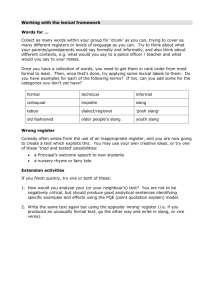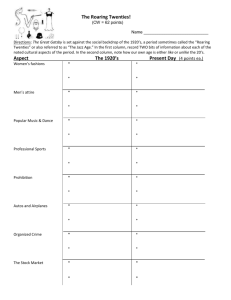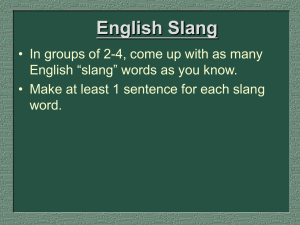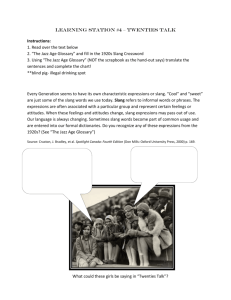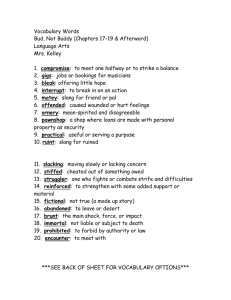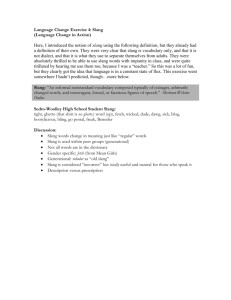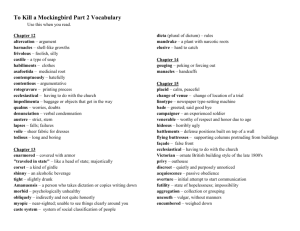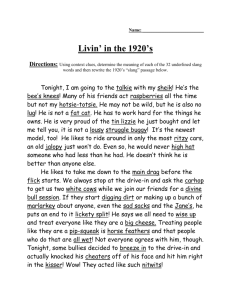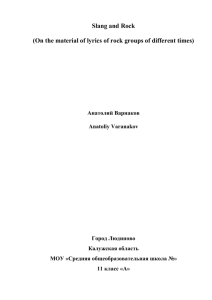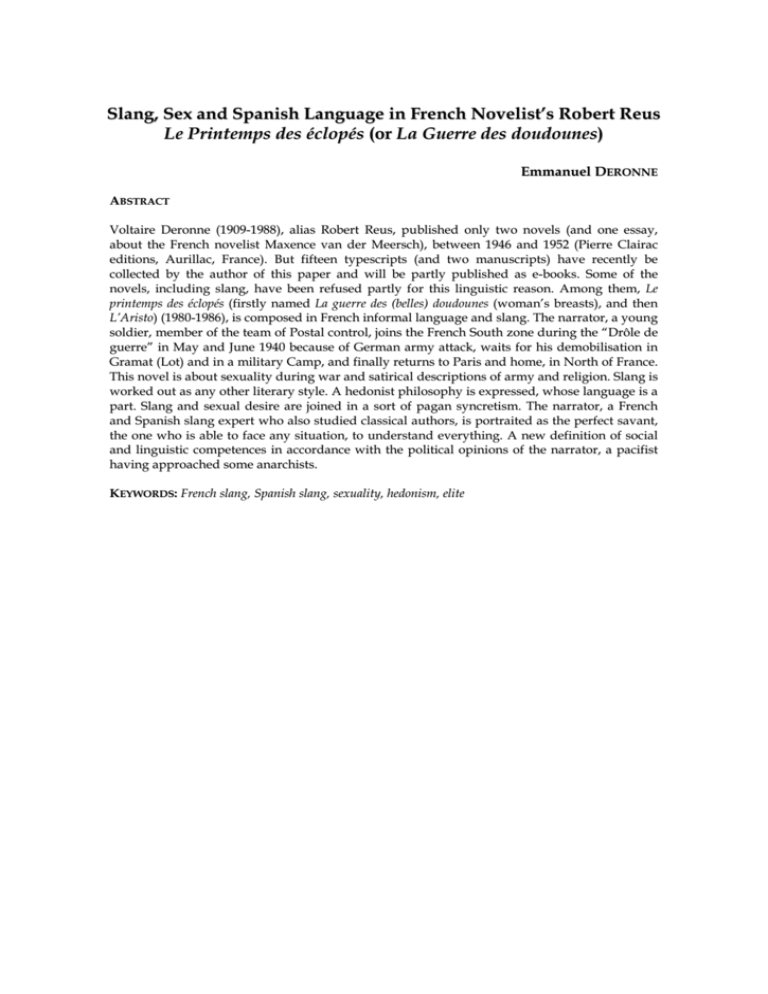
Slang, Sex and Spanish Language in French Novelist’s Robert Reus
Le Printemps des éclopés (or La Guerre des doudounes)
Emmanuel DERONNE
ABSTRACT
Voltaire Deronne (1909-1988), alias Robert Reus, published only two novels (and one essay,
about the French novelist Maxence van der Meersch), between 1946 and 1952 (Pierre Clairac
editions, Aurillac, France). But fifteen typescripts (and two manuscripts) have recently be
collected by the author of this paper and will be partly published as e-books. Some of the
novels, including slang, have been refused partly for this linguistic reason. Among them, Le
printemps des éclopés (firstly named La guerre des (belles) doudounes (woman’s breasts), and then
L’Aristo) (1980-1986), is composed in French informal language and slang. The narrator, a young
soldier, member of the team of Postal control, joins the French South zone during the “Drôle de
guerre” in May and June 1940 because of German army attack, waits for his demobilisation in
Gramat (Lot) and in a military Camp, and finally returns to Paris and home, in North of France.
This novel is about sexuality during war and satirical descriptions of army and religion. Slang is
worked out as any other literary style. A hedonist philosophy is expressed, whose language is a
part. Slang and sexual desire are joined in a sort of pagan syncretism. The narrator, a French
and Spanish slang expert who also studied classical authors, is portraited as the perfect savant,
the one who is able to face any situation, to understand everything. A new definition of social
and linguistic competences in accordance with the political opinions of the narrator, a pacifist
having approached some anarchists.
KEYWORDS: French slang, Spanish slang, sexuality, hedonism, elite

